From the story of "me and us"
Looking at students reading the Tale of Kieu, singing opera and acting out Xuy Van pretending to be crazy, Ms. Le Thi Bich Huong - Vietnamese language lecturer (Department of Southeast Asian Studies, Faculty of Asian and North African Studies, Ca' Foscari University of Venezia, Italy) sometimes cannot believe that she can do something that many people once thought was useless.
“While others sleep 8 hours a day, I only sleep 2 hours. If I don’t have money to rent an outside class, I take students home, teach them, and serve them meals. For one or ten students, I have to carefully prepare the curriculum. When I hear that other women have gathered a few students and opened a Vietnamese class, I also help them prepare the lessons. Then I come up with extracurricular activities like practicing Cheo, Tuong, and Quan Ho to add more culture to the few Vietnamese lessons” - that is how Ms. Le Thi Bich Huong in Bologna, Italy “self-funds” the project What I Want to Do.
Mentioning Italy, we immediately understand that teaching and preserving Vietnamese is difficult. The boot-shaped country stretches along the coast, each city has a few dozen Vietnamese/Vietnamese-origin settlers, totaling only about 5,000-6,000 people, which is nothing compared to the number of Vietnamese in big cities in Poland, Germany, Czech Republic, France, America...
“Students study for 3 years, but the total time to study Vietnamese separately is only 3 months. It takes me 4 hours/day to go back and forth from Bologna to Venezia, plus I invest in extracurricular activities, so teachers and students are always on the go. I am very proud that 9 students received their first bachelor's degrees in the 2019-2022 class. In June this year, 6 more students graduated. In September, we are preparing to welcome the new generation.”
Even in Belgium, a beautiful, round country with convenient transportation and about 13,000 Vietnamese/Vietnamese origin, organizing classes is not easy. Every summer, we hope to have enough students to start in September. The Vietnamese class is a project that started in 2012, organized by the Belgium-Vietnam Alliance (BVA), with great contribution from Mr. Huynh Cong My - currently President of the General Association of Vietnamese in Belgium. About a year later, Ms. Nguyen Bich Diep went to Brussels (Belgium) and then attached to this default "loss-making" project.
Ms. Diep said: “After a year of participating, there were two adult classes, and one children's class was maintained from the beginning. The expenses including renting a location, paying teachers' salaries, buying textbooks... were difficult to balance with the revenue from moderate tuition fees. It was impossible to break even, but BVA had three pillars: economic - cultural - social, so they still maintained the Vietnamese class as a cultural pillar. Vietnamese grammar is not too difficult, but the pronunciation is difficult. To have the most effective teaching method, I had to choose the most neutral textbook and choose the most neutral words.”
When it comes to teaching Vietnamese abroad, people often compare the story of Poland establishing Lac Long Quan School. Every year, Lac Long Quan School (established in 2007) recruits 150-200 students, it is true that a large community has many students. But is the love for the mother tongue and many Vietnamese values through the means of communication, Vietnamese, integrated enough to spread? Therefore, there is the next story about the idea of establishing the forum "Preserving Vietnamese abroad" initiated by Mr. Le Xuan Lam - Chairman of the Board of Directors of Lac Long Quan School and a number of teachers.
To the lesson called community
Right after the closing ceremony of the 2022-2023 school year at Lac Long Quan School, Mr. Le Xuan Lam emotionally told me: “In the spring of 2021, the Covid-19 epidemic was not yet under control. I and a few other teachers thought that since the school was teaching online anyway, we should connect with Vietnamese teachers in other countries to see what would happen. Who knows, there might be people who are interested in and teach Vietnamese like us to exchange methods. Being able to teach is already a joy, and being able to support each other is even more meaningful.”
Mr. Le Xuan Lam contacted Ms. Tran Thu Dung in France, then colleagues at the Faculty of Philology, University of General Sciences in Russia... Everyone enthusiastically introduced and connected widely. The first workshop on June 27, 2021 had more than 100 teachers, lecturers, language researchers... from 28 countries participating. After that workshop, July 15, 2021 officially became the founding date of the forum Preserving Vietnamese Language Abroad.
Today, the Preserving Vietnamese Language Abroad Forum marks two years since its founding. The event to celebrate the forum’s second anniversary took place on July 15 and 16 in Poland, including a workshop and online discussion on July 15 with the theme “Discussion on the situation of teaching and learning Vietnamese abroad”. The key words the executive board set for discussion were facilities, classes, teachers and students, the situation of curriculum, and experiences in organizing schools abroad.
Looking at the number of authors from Poland, Belgium, Germany, Taiwan, the Netherlands, Korea, Italy, Slovakia, France registering for papers such as "Mission of inspiration - Vietnamese: beauty of love and intelligence", "International Vietnamese proficiency test and statistics", "Situation of studying and teaching Vietnamese as a foreign language in France", "Experience in writing Vietnamese textbooks and experience in teaching Vietnamese"... it can be seen that the forum owns a mine of Vietnamese language abroad with large reserves, rich in reference value, application as well as convenience for research, planning development policies. From here, the shadow of a community project is more clearly seen.
And what direction will the project “What I want to do” of each individual teaching Vietnamese abroad develop? Ms. Le Thi Bich Huong suggested: “UNESCO has an International Mother Language Day on February 21 every year. The issue of immigration is a concern of the whole world . Just be active in your place of residence, learn through local cultural centers, and you will have the opportunity to teach and spread Vietnamese.”
And Ms. Ha Thi Van Anh, Department of Vietnamese, Faculty of Far Eastern and Southeast Asian Philology, Institute of Linguistics, Taras Shevchenko University (Ukraine) happily let me read a message from a new graduate: “These 6 years have been very useful, I hope that we will use the knowledge we have gained in the most useful and effective way. Our faculty is the best and all the teachers are the most dedicated… I always feel that and I am very grateful to you!”.
Source


![[Infographic] Notable numbers after 3 months of "reorganizing the country"](https://vphoto.vietnam.vn/thumb/1200x675/vietnam/resource/IMAGE/2025/10/4/ce8bb72c722348e09e942d04f0dd9729)



![[Photo] Students of Binh Minh Primary School enjoy the full moon festival, receiving the joys of childhood](https://vphoto.vietnam.vn/thumb/1200x675/vietnam/resource/IMAGE/2025/10/3/8cf8abef22fe4471be400a818912cb85)

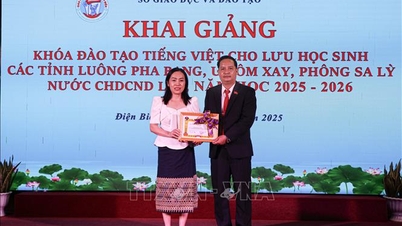

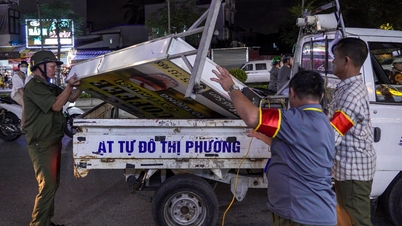








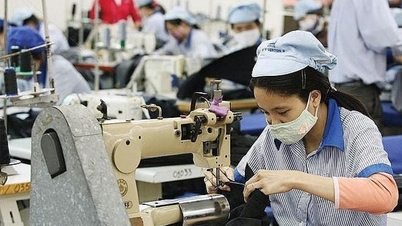


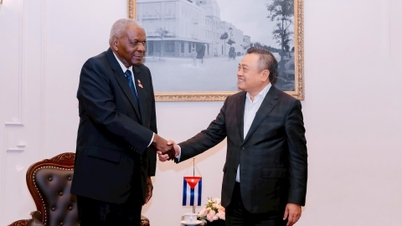
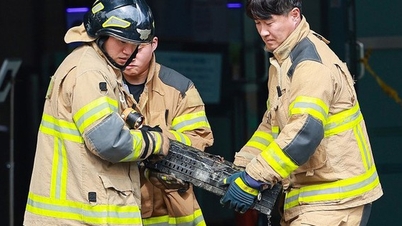

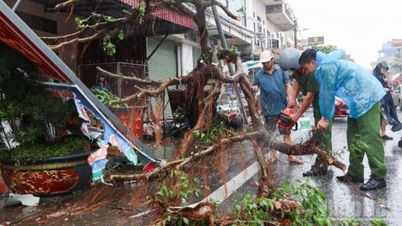






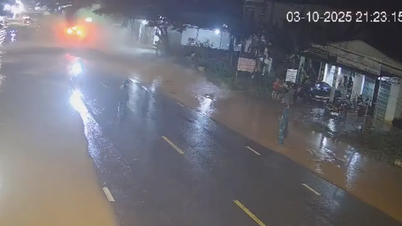
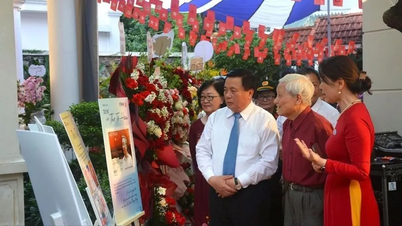
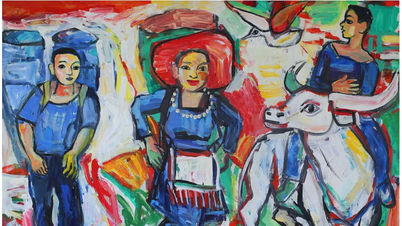

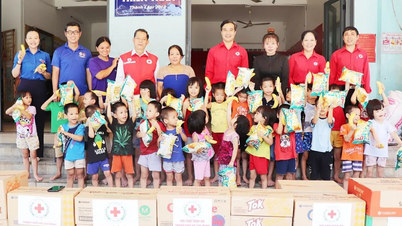
![[Photo] Prime Minister Pham Minh Chinh chairs meeting to deploy overcoming consequences of storm No. 10](https://vphoto.vietnam.vn/thumb/1200x675/vietnam/resource/IMAGE/2025/10/3/544f420dcc844463898fcbef46247d16)
































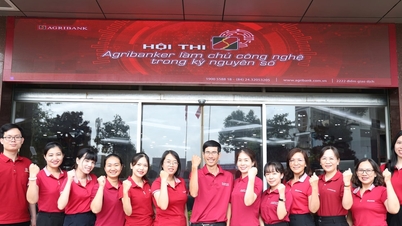
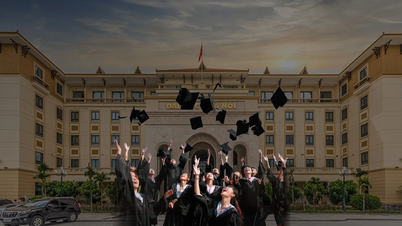


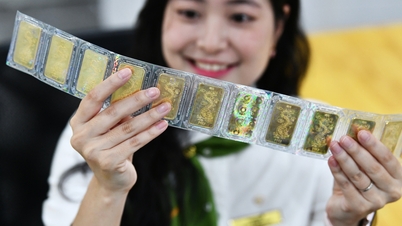



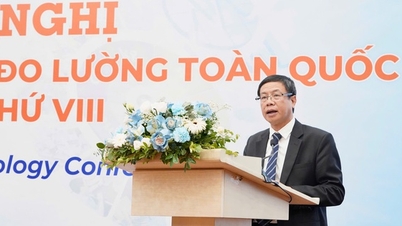

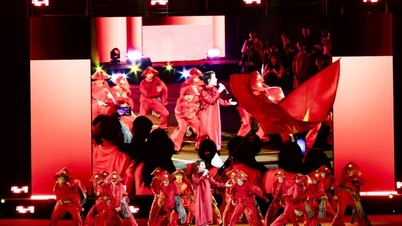


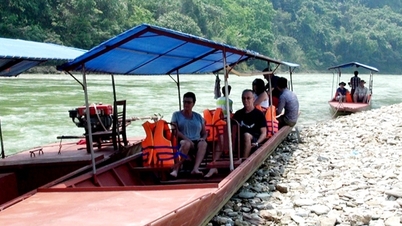


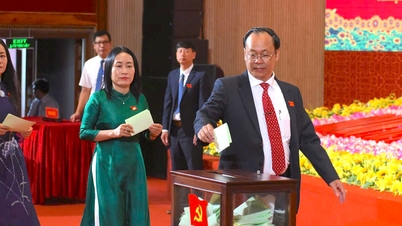



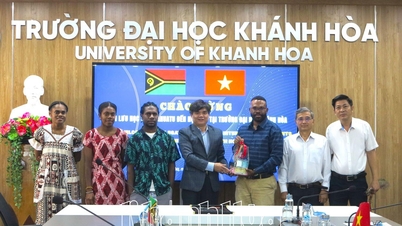



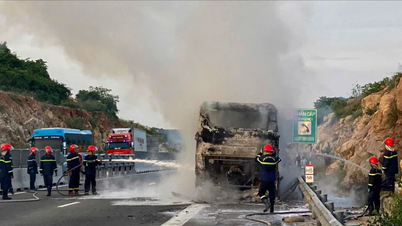
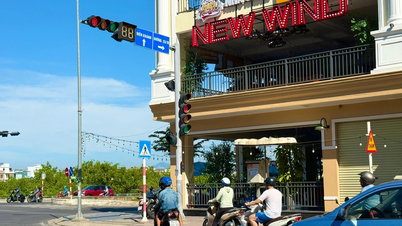













Comment (0)